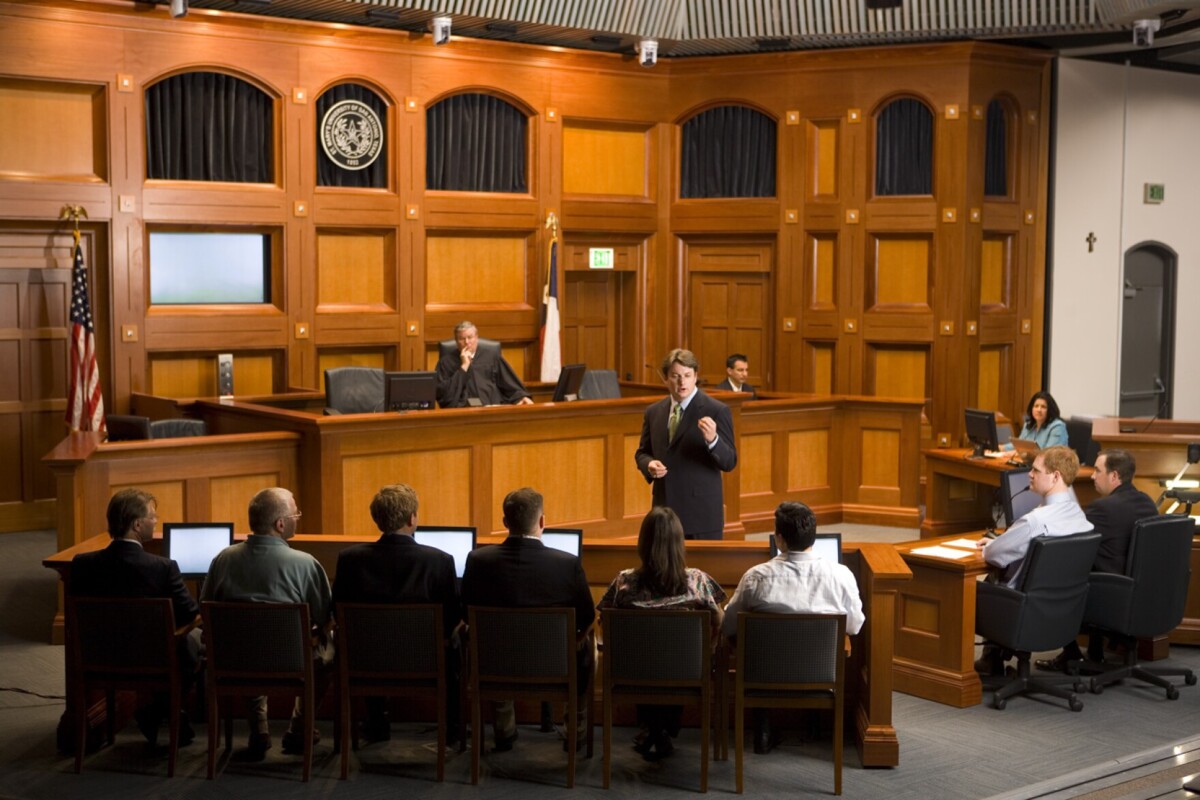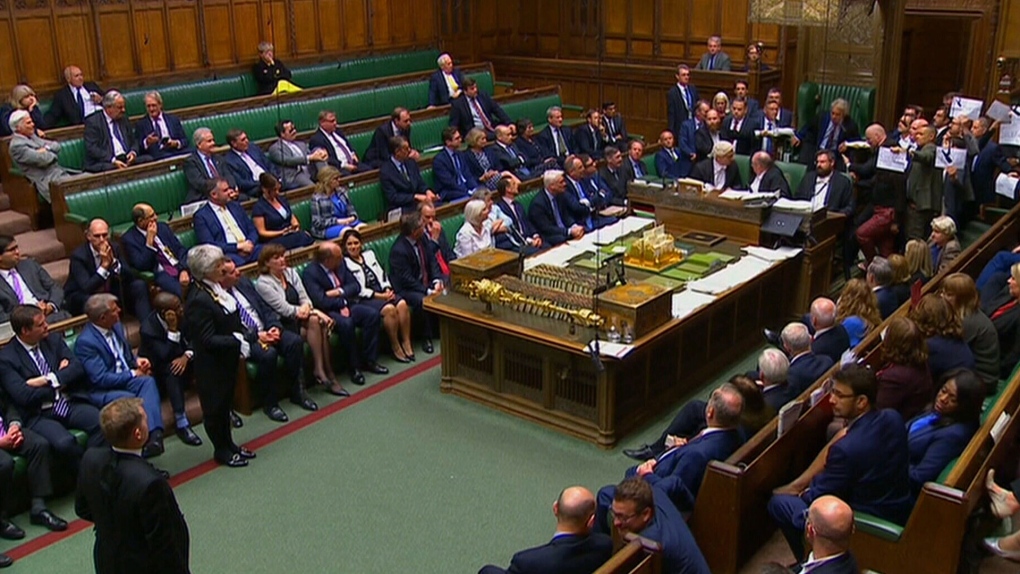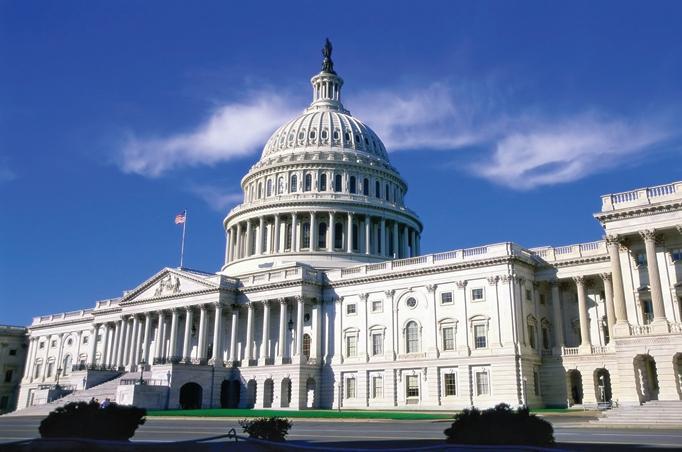Introduction
The year 2024 was a watershed point in American politics, characterized by deep reflection and increased scrutiny due to the resurgence of congressional insider trading. The moral behavior of government officials sprang to the forefront as the country dealt with the fallout from both international and local crises. During this time, there was a convergence of public protest, media attention, and legislative actions, all of which contributed to a climate where openness and responsibility in handling public funds were paramount. We examine the major happenings, probes, and laws that will make up “2024: The Year Congressional Insider Trading Came Under The Microscope Again.”
Problem Synopsis
There has been a lot of focus on the ethical ramifications of lawmakers buying stocks using non-public information in recent years, which has brought the topic of insider trading in Congress to the forefront. Using substantial, non-public information to purchase or sell shares has long been a contentious practice known as insider trading. The effect on public faith in government agencies is significant under any circumstances, but it becomes exponentially worse when lawmakers are involved. Legislators’ close ties to the financial sector have prompted concerns about the honesty and transparency of the political process. When elected officials engage in insider trading, the public views it as a breach of trust, which weakens faith in the institutions that are supposed to look out for their best interests.
The Background Of Insider Trading In Congress
Insider trading in Congress is not a recent development; rather, it has developed over time in tandem with the convergence of political and financial spheres. Skepticism over lawmakers potentially abusing their privileged positions for financial benefit has been heightened by previous cases. Legislative authorities have passed regulations to deal with these issues, but there has been a lack of openness and enforcement. There has a long history of insider trading in Congress, ranging from covert stock transactions to more obvious misuses of authority. Regular demands for reforms to make elected officials more accountable have resulted from the public’s diminishing faith in government institutions caused by such behaviors.
The Importance Of The Review In 2024
There will be a watershed moment in the continuing discussion about insider trading in Congress in the year 2024. There are a number of reasons why this year’s inspection is so noteworthy. To begin, the matter may have been thrust into the spotlight due to high-profile cases or disclosures. The public usually becomes enthralled and demands accountability when scandals or issues surround parliamentarians’ financial dealings.
Furthermore, concerns about government institutions’ lack of openness and ethical behavior may have been heightened by the overall political and social atmosphere of 2024. During periods of social upheaval and political conflict, the public places a premium on elected leaders’ ethical behavior.
In this light, the 2024 investigation into congressional insider trading is representative of larger worries regarding the state of democratic government and the necessity for strong safeguards against the misuse of authority, rather than just an indication of specific wrongdoings. The public is putting more pressure on lawmakers to fix these problems and restore trust in the democratic process by demanding more openness and responsibility from them.
Events Leading Up To 2024

Prominent Insider Trading Allegations In Congress Prior To 2024
Concerns regarding the ethical behavior of political officials were heightened in the years leading up to 2024 when some members of Congress were accused of participating in insider trading. A well-known senator was implicated in one such case for allegedly trading stocks based on non-public information. The senator was allegedly involved in behind-closed-doors sessions when lawmakers discussed pending legislation that might affect the stock values of specific industries. Prompt stock trades that appeared to correspond with legislative developments were a common feature of these purported insider trading cases.
Furthermore, there were instances where members of Congress’s staff or immediate families were found to have engaged in insider trading. Their close relationship to MPs allegedly allowed them to have access to confidential information, which they utilized to make profitable stock trades. Investigations were more complicated due to the interdependent relationships among MPs, their staff, and family members, which brought into question the level of information sharing within political circles.
How The Media And Public Reacted To Past Scandals
The media and public were not oblivious to the disclosure of purported insider trading by members of Congress. The media lavishly reported these incidents, drawing attention to what many saw as unethical behavior on the part of powerful politicians. Already suspicious of government corruption, the people reacted angrily, calling for elected officials to be transparent and accountable. Many voters lost faith in the political system as a whole and became increasingly disillusioned as a result of the scandals.
Many people voiced their opinions and demands for immediate investigations and punishments for those responsible through grassroots movements, social media campaigns, and opinion pieces. The public is upset that MPs who engage in unethical financial activities are not being held accountable and that there seems to be double standards. Investigative journalism by the media revealed the specifics of the purported insider trading schemes and how they might have affected the public interest, further reinforcing these feelings.
Urges More Openness And Responsibility
Many people in Congress wanted more openness and responsibility after the public uproar and media attention caused them to demand it. Concerned people, advocacy groups, and ethics watchdogs put pressure on politicians to pass serious legislation to stop insider trading. A bipartisan consensus that went beyond party lines was expressed by these demands for change, which were not restricted to certain political affiliations.
Stricter disclosure requirements for members of Congress’s financial transactions, restrictions on stock ownership, and the establishment of an independent ethics oversight agency to probe insider trading charges were all part of the reform proposals. The public wanted parliamentarians to be financially accountable to the same extent as regular residents. It is by highlighting the necessity for a system that put the needs of the people ahead of lawmakers’ own financial interests.
The Landscape In The Year 2024
The Current Political And Economic Situation
In 2024, a myriad of variables, both local and foreign, were influencing the US political and economic climate. At home, people were talking about climate change, healthcare reform, and economic recovery. The nation was dealing with the fallout from international happenings, such as the continuing effects of the COVID-19 epidemic and geopolitical conflicts. Taken together, these elements shaped the climate for policymaking. And provided the groundwork for increased examination of government officials’ ethical behavior.
The Financial Interests Of Prominent Members Of Congress
There was a wide range of political views and economic interests represented in Congress in 2024. Legislative decisions were heavily influenced by key individuals, such as powerful members and committee chairs. Much of the public’s attention shifted to the lawmakers’ financial interests. Particularly those of those with connections to sectors that would be directly impacted by policy decisions. Previous cases had shown that insider trading accusations occasionally involved trades made by associates with close ties to lawmakers. Therefore the investigation expanded to include their immediate families in addition to individual members.
The Increasing Public Mindset Towards Government Ethics
By 2024, the public’s understanding of the government’s ethical responsibilities had grown significantly. The public is now more educated and watchful as a result of previous insider trading incidents. And wider conversations about responsibility and openness. Particularly important in spreading information and rallying public opinion were social media. More and more, citizens were taking matters into their own hands. It is by insisting that their elected representatives operate with more integrity and be more forthright about their financial dealings. The public’s increasing knowledge and concern about congressional insider trading created an environment. Where modifications to the law could be easily implemented.
Reaction From Lawmakers

Current Insider Trading Laws And Regulations
Current insider trading laws and regulations failed to adequately handle the specific difficulties presented by insider trading within Congress prior to 2024. It is as they mostly applied to corporations. The SEC rules, for instance, cracked down on insider trading in the stock market as a whole but did little to curb it among lawmakers. Given the unique characteristics of insider trading in Congress, this regulatory vacuum highlighted the necessity for specific legislative changes.
Congressional Resolutions And Proposals To Fix The Problem
Legislators have introduced a slew of laws and initiatives to combat congressional insider trading in reaction to public pressure and the demand for thorough legislative remedies. Although they ranged in size and intensity, these legislative efforts aimed to increase openness, limit stock trading. And set up systems for impartial supervision. A number of the suggestions centered on making lawmakers more transparent about their financial dealings. While others sought to establish an independent ethics body.
Legislative Changes Discussions And Debates
Legislation addressing insider trading was the subject of heated debate when it was introduced to Congress. Legislators from all sides of the aisle debated how to strike a fair balance between serving the public interest and preserving elected officials’ financial interests. Some of the topics covered in the debates included the possible repercussions for noncompliance. The extent of acceptable financial activities, and the legislative definition of insider trading.
Legislators from both parties met to discuss the pressing need to fix Congress’s ethical problems. And their shared resolve to win back the public’s faith in the government. There were sometimes complex negotiations and concessions during the legislative process. It is due to ideological disagreements and worries about the possible influence on legal financial activity.
Undertakings And Regulations
Congressional Committees And Agencies Responsible For Investigating Insider Trading
Several government organizations and congressional committees were assigned the responsibility of investigating claims of insider trading involving lawmakers in 2024. The actions of their colleagues were closely examined by the committees of Congress charged with financial, ethical, and judicial oversight. Investigations into possible insider trading by members of Congress included, among other things, the House Committee on Financial Services and the Senate Committee on Banking, Housing, and Urban Affairs.
Furthermore, authorities like the SEC were busy looking into insider trading claims. Especially where they pertained to infractions of preexisting securities laws. An exhaustive and detailed investigation of the claims could not have been possible without cooperation between legislative committees and regulatory authorities.
Investigations That Will Be In 2024
The Investigation By The Senate’s Banking, Housing, And Urban Affairs Committee
The Senate Committee on Banking, Housing, and Urban Affairs will launch a comprehensive investigation into allegations of insider trading involving multiple senators in 2024. These congresspersons and their families’ stock exchanges are inside the board’s domain to examine. The planning of these exchanges connection to administrative decisions influencing businesses pertinent to the MPs in issue will be painstakingly analyzed. One of the main oversight gatherings, the Senate Advisory group on Banking, Lodging, and Metropolitan Undertakings, is keeping watch for occurrences of conceivable monetary benefit from the abuse of special data.
The House Committee On Financial Services Investigations
The House Committee on Financial Services is expected to lead investigations into insider trading in the House of Representatives. Assumptions are high that this test will be careful and calculated in its assessment of House individuals’ monetary exchanges. It is with an accentuation on the connections between authoritative demonstrations and stock trading. In its journey to reveal any examples of exchange that demonstrate the maltreatment of private data for individual monetary profit. The panel will grow its examination to colleagues and helpers of charged agents.
Assessing Legislative Stock Portfolios Through The SEC
It is accepted that the SEC will move forward its examination of certain legislators’ stock possessions in 2024. In the event that parliamentarians have defied any protections norms or guidelines, this examination will decide it under the power of the foremost administrative office responsible for the protections markets. The SEC will thoroughly investigate the financial statements, trading patterns, and communication records of Congress members. It is to determine whether or not they engaged in unethical or illegal stock transactions.
A Cross-Chamber Examination By The Joint Legislative Ethics Office
In 2024, the House and Senate are supposed to endorse a joint examination by the Legislative Morals Office. Denoting an uncommon occurrence of bipartisan collaboration. The reason for this joint examination is to investigate potential breaks of legislative morals regulations relating to monetary exchanges including a subset of legislators from the two places of Congress. The consolidated examination plans to completely explore the cases and keep up with objectivity. Exhibiting a devotion to handling worries around insider tradingg with practically no political bias.
An Investigation By The Special Counsel Into Members Of Congress And Their Associates
It is accepted that insider trading claims including partners and helpers of Congress will be researched by the arrangement of an exceptional guidance in 2024. Individuals with connections to MPs will be examined autonomously. It is to check whether they involved their admittance to classified data for monetary advantage. The special counsel’s investigation aims to uncover any wrongdoing. And provide an objective assessment of colleagues’ and assistants’ possible involvement in insider trading. It has the authority to recommend disciplinary measures and initiate legal action.
Will Involved Lawmakers Cooperate Or Oppose?
The degree of cooperation from MPs who were implicated fluctuated as the investigations progressed. Some lawmakers voluntarily gave investigators all the information they needed, including documents, testimony, and more. Cooperation shown an openness to dealing with the accusations in an ethical and lawful way while also being honest.
On the other side, several legislators did not cooperate with the probes. And instead challenged them in court, claimed legislative privileges, or withheld material. Some may be resistant because they are worried about the political fallout. Because they see it as an interference with the legislative process. On the other hand, public scrutiny and the impression of blockage were both heightened by such resistance.
The gravity of the accusations, the reliability of the proof, and the larger political climate all played a role in shaping the dynamics of cooperation or opposition. There was mounting public pressure on lawmakers who were reluctant to participate with investigations to publicly address the charges. While lawmakers who did so wanted to show accountability and a dedication to ethical governance.
Recent News About Steve Buyer’s Penalty For Insider Trading

Steve Buyer’s Professional And Personal History In Politics
From 1993 until 2011, Republican Steve Buyer of Indiana was a notable player in American politics. Buyer demonstrated his commitment to public service and legal expertise throughout his political career. His notable accomplishments include leading the House Veterans’ Affairs committee. And serving as a key prosecutor in the 1998 impeachment trial of President Bill Clinton. Buyer was a formidable politician due to his extensive work on important committees and his significant contributions to legislative affairs.
22 Months In Prison; Forfeiture Of $354,027; Fine Of $10,000
Steve Buyer’s legal nightmare reached its peak on September 19, 2023. It is when he received a sentence for his role in illicit stock trading that relied on inside knowledge. A 22-month prison term was handed down by the court, highlighting the gravity of Buyer’s conduct. Buyer was ordered to surrender $354,027 in ill-gotten gains. Which represent the financial benefits acquired from his insider trading operations, in addition to the prison term. As a further measure of punishment imposed by the legal system, Buyer was fined $10,000.
Participation Of Buyers In Insider Trading Concerning The Merger Of T-Mobile And Sprint As Well As The Acquisition Of Navigant
Two major corporate events were at the heart of the insider trading accusations that entangled Buyer in legal trouble. To begin with, in April 2018, T-Mobile and Sprint announced a $26.5 billion merger. And he was first charged with offenses related to that deal. Second, the management consulting firm Navigant was associated with illegal transactions in which Buyer was involved. According to the claims, these deals took place while Buyer was a consultant and lobbyist following his time in Congress.
Buyer’s Duties As A House Prosecutor And On The Veterans Affairs Committee
Even after his involvement in insider trading was resolved, Steve Buyer continued to have an influence on legislative affairs. As chair of the House Veterans’ Affairs committee, he was instrumental in addressing and resolving matters pertaining to veterans. In addition, Buyer’s involvement as a prosecutor in the House during the impeachment trial of President Bill Clinton in 1998 demonstrated his knowledge of the law and his dedication to protecting the honesty of the legislative process. A further element of complexity was added to Buyer’s story. It is by the contrast between his previous public service and his later legal problems. This highlights the possible decline in fortunes that public personalities may suffer when they become embroiled in legal disputes.
Conclusion
After the 2024 congressional insider trading scandal, the country’s expectations and norms for ethical behavior in government buildings underwent a dramatic change. This year’s reforms, investigations, and discussions highlighted a need for openness and responsibility from all parties involved. After the initial shock subsided, these discoveries’ effects on the public’s faith in their representatives lingered long after the dust had cleared. Redefining the mechanics of government and highlighting the need of honesty in public service, the lessons learnt in 2024 set the stage for a more watchful and educated populace.
Frequently Asked Questions
1. In 2024, Congressional Insider Trading Was Once Again In The Spotlight. What Caused This Shift?
The charges of lawmakers using non-public information for financial benefit sparked a wave of high-profile lawsuits and public outcry in 2024, which refocused attention on insider trading in Congress. The public demanded that the government be held more accountable and open after these revelations.
2. When Looking Into Insider Trading In Congress In 2024, Which Probes Were Most Influential?
The SEC, the House Committee on Financial Services, the Senate Committee on Banking, Housing, and Urban Affairs, a Joint Congressional Ethics Office, and a Special Counsel were among the entities that held investigations. The overarching goal of these probes was to look into the tax and spending habits of influential lawmakers.
3. In Light Of The Insider Trading Accusations In 2024, Were Any New Laws Passed Or Proposed?
In 2024, yes, there were multiple bills introduced to Congress. The purpose of these ideas was to fill the loopholes in current insider trading legislation by limiting stock ownership, instituting independent oversight systems to guarantee responsibility, and enforcing stronger disclosure standards.
4. In 2024, When Allegations Of Insider Trading In Congress Were Made Public, How Did The General Population Respond?
There was a lot of public outrage and concern as a result. Many variables added to the enhancement of popular assessment, including online entertainment, grassroots developments, and customary media. There was a boundless interest for a more elevated level of administration, and with it came calls for chose authorities to be more open, moral, and responsible.
5. How Will The Events Of 2024 Affect The Public’s Perception Of Congress In The Years To Come?
The public’s perception of Congress changed significantly as a result of what happened in 2024. Citizens became more involved and watchful as a result of the altered expectations brought about by the increased consciousness and call for responsibility. The public’s faith in elected officials was impacted by the lessons learnt in 2024, which highlighted the significance of honest and open government.


